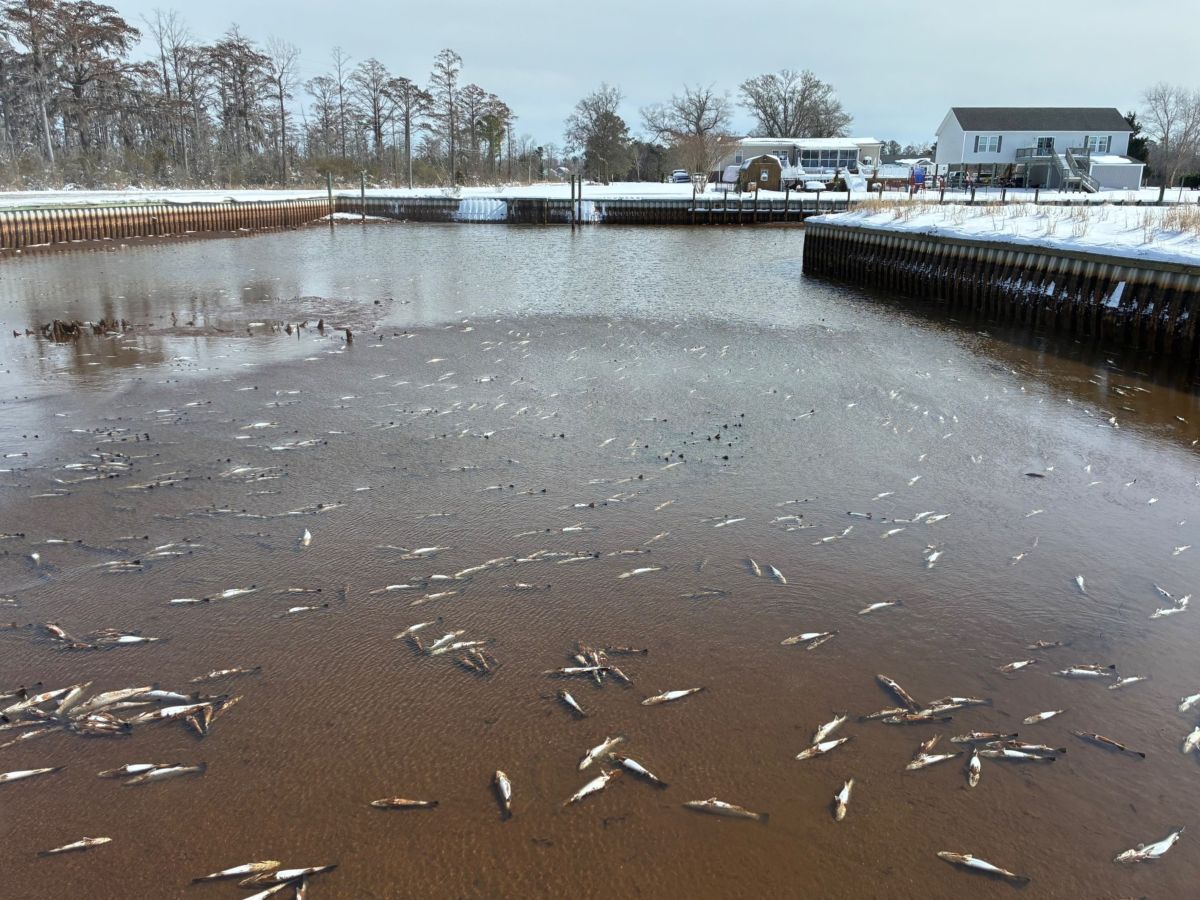For every complex problem there is an answer that is clear, simple and wrong. — H. L. Mencken
The N.C. Coastal Federation maintains its longstanding opposition to offshore drilling for oil and natural gas and here’s why.Mencken’s quote accurately sums up the debate over whether or not to drill for oil and gas off the N.C. coast.
Advocates of offshore oil and gas development say it will help the U.S. become more energy independent, lower gas prices, provide jobs, increase tax revenues and with careful management be environmentally safe and benign.
Supporter Spotlight
But the track record for oil and gas development elsewhere in the country is dogged by failed claims of economic prosperity and environmental stewardship. Tainted coastal waters, disruptions of recreational and commercial fishing and inequitable distribution of economic benefits result in an ugly legacy for oil and gas development.
The N.C. coast is still at a crossroads when it comes to energy development. In the late 1980s and early 1990s under the administration of Republican Gov. Jim Martin, the state fought efforts by Mobile Oil to explore for oil and gas off our coast. At that time, Martin eventually came to the belief that inviting this industry into our state outweighed the benefits it would bestow on our residents. But now Gov. Pat McCrory is in favor of oil and gas development, and says he’ll promote it to occur off our coast.
Here is a synopsis of the arguments for and against offshore oil development in N.C.:
- Oil and gas reserves will make our nation more energy independent. In reality, the amount of oil and gas off our coast is just a tiny drop in the bucket of U.S. demand. The Carolina Trough south of Cape Hatteras has a potential of about 690 million barrels of oil and 16.25 trillion cubic feet of gas, enough to supply our country’s demands for just 36 days of oil and 246 days of gas (Governor’s Scientific Advisory Panel on Offshore Energy Report).
- Oil and gas will cost less. According to the Annual Outlook on energy supply and prices written by the Energy Information Administration, analysts project that the existing oil and gas reserves in the U.S. coast would not lower, or even significantly affect, gas prices.
- Offshore oil drilling will create 6,700 new jobs.The Southeast Energy Alliance, an oil industry trade group, made this estimate in a 2009 report based on potential investments in offshore platforms and onshore refinery facilities. Previous studies by independent committees formed by state government have found that the chances are very slim that N.C. could even compete for this investment with larger ports and much more industrialized areas in Virginia and South Carolina. This estimate assumes that local communities would even want to allow refineries and petrochemical industries. Oil refineries have been proposed for Wilmington and Morehead City in the past and very intense public opposition forced state and local politicians to withdraw their early support for these industries and to eventually soundly reject them.
- Tax revenues will increase. The industry estimates that $66 to $400 million a year in direct income to state government over the lifetime of the reserves will come from royalties and leasing fees. However, it will take a Congressional change in federal law to divert these funds to the states keeping in mind the severe budget issues facing the nation currently. This revenue estimate does not speak to the “costs” associated with providing for the public infrastructure and services that are necessary to provide for an increased population growth.
- Oil and gas development will cause little harm to marine fisheries. Most opposition to offshore oil and gas exploration is focused on possible impacts in the open ocean. Because the Carolina Trough is located at the confluence of two currents – the cold Labrador and warm Gulf Stream currents — this area is hugely productive for fisheries and specifically prone to disasters that might be caused by hurricanes and nor’easter storms. Normal, daily operations of an oil rig also produce water pollution through small oil and gas leaks and natural geologic seeps posing constant risk to North Carolina’s natural resources, economy and society.
Offshore drilling is a shortsighted solution that does nothing to minimize global climate change. While fossil fuels will remain in the energy mix into the foreseeable future, reducing greenhouse gas emissions should be the guiding principal behind any future energy policy.
Barring a major catastrophic disaster offshore, the development of support facilities and refining capacity onshore poses the biggest risks to the N.C. coast. We have one of the cleanest and most productive coastlines remaining in the U.S. This will no longer be true if oil and gas development results in major new investments in onshore refineries, storage facilities, pipelines and related petrochemical industries (as proponents claim it will). That’s because petrochemical industrial development has never taken place without degrading coastal environments. Existing environmental laws work to minimize harmful impacts, but do not prevent them from occurring.Producing usable supplies of oil and gas from off the N.C. coast is a very long-term pipe dream. Even if the oil companies could drill anywhere they wanted off the coast of N.C., it would take at least two decades before any meaningful production of energy could occur (Governor’s Scientific Advisory Panel on Offshore Energy Report). Congress will have to authorize leasing, environmental impact studies would need to be completed, and permits issued. Right now there are still hundreds of existing but untapped offshore oil and gas leases in this country that are not being used. These unused leases are situated very close to existing refineries and other necessary oil and gas infrastructure. The existing over-supply of natural gas and the huge expense of tapping new and yet unproven reserves will make drilling off our coast a low priority for the private sector for many years to come.
Supporter Spotlight
For example, decades of petrochemical production around Galveston Bay has resulted in numerous fish and shellfish consumption advisories. The most widespread advisory is for speckled trout because of dioxin and PCBs. Residents are warned not to consume more than a one eight-ounce meal of trout each month, and women who are nursing, pregnant or may become pregnant and children should not consume the fish at all. There are also advisories for red drum, blue crabs and other popular estuarine species in these tainted waters.
According to the Governor’s Scientific Advisory Panel on Offshore Energy Report, no independent studies have been completed to assess the economic benefits of oil and gas exploration and development in the Atlantic for N.C. Furthermore, several attempts to study socio-economic and environmental impacts of an offshore oil and gas drilling in the N.C. outer continental shelf were made but they were all inconclusive. To this date there is no comprehensive study of these issues.
But common sense should prevail when it comes to deciding whether or not to support or reject efforts to promote petrochemical industries along our coast. While offshore oil and gas development in North Carolina is highly unlikely to ever deliver on the favorable economic and environmental claims of its proponents, it will no doubt make some energy companies and their investors a lot of money. Do we want to risk our spectacular coast and the existing economic and recreational industries by chasing this alternative economic future that has so severely pollutes so many other coastal areas?<







